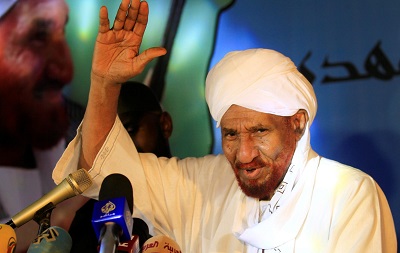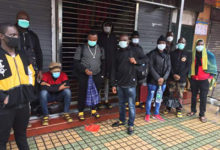
proofread
Sudan opposition decries army’s suspension of talks, sees growing anger
Sudan’s opposition alliance said on Thursday the ruling military council’s 72-hour suspension of talks with protesters was a “regrettable” setback to efforts to forge a new democratic era following the overthrow of veteran leader Omar al-Bashir.
Describing protesters as “increasingly angry”, the alliance issued its condemnation after some of the worst violence in weeks in central Khartoum.
On Wednesday, at least nine people were wounded by troops firing live ammunition to clear demonstrators. On Monday, at least four people were killed when security forces tried to clear some protest sites – the first deaths linked to the Khartoum upheaval in several weeks.
In a televised speech, the head of Sudan’s Transitional Military Council (TMC), Lieutenant General Abdel Fattah al-Burhan said the council had decided to suspend talks for 72 hours “until a suitable atmosphere is created to complete an agreement”.
Burhan said protesters were disrupting life in the capital by blocking roads outside a protest zone agreed upon with the military.
Protesters in recent days have sought to expand their presence beyond a sit-in outside the defence ministry that remains the centre of opposition demonstrations.
On Thursday, Reuters witnessed protesters near Khartoum University manning a road block on Nile Street, a major avenue running south of the Blue Nile that is outside of the zone.
The opposition alliance, known as the Declaration of Freedom and Change Forces (DFCF), said that the military council’s suspension of talks ignored demonstrators’ feelings.
“The suspension of negotiations is regrettable…and ignores the reality of the revolutionaries who are increasingly angry as a result of the bloodshed and the souls that we lost,” the alliance said in a statement.
It promised to maintain sit-in protests outside the Defence Ministry and across the country.
The sit-in, the culmination of months of demonstrations against Bashir’s three-decade rule, was not halted after the army removed him from power on April 11 as the opposition demands that the military hand over power to civilians.
The violence has cast a shadow on talks that had appeared on course to reach a deal on forming a joint military-civilian body to run the country for a three-year transition period until presidential elections.
In Nile Street, some protesters said they thought they should go back to blocking a smaller area, which includes the space outside of the defence ministry compound, where the sit-in started on April 6. –Reuters





